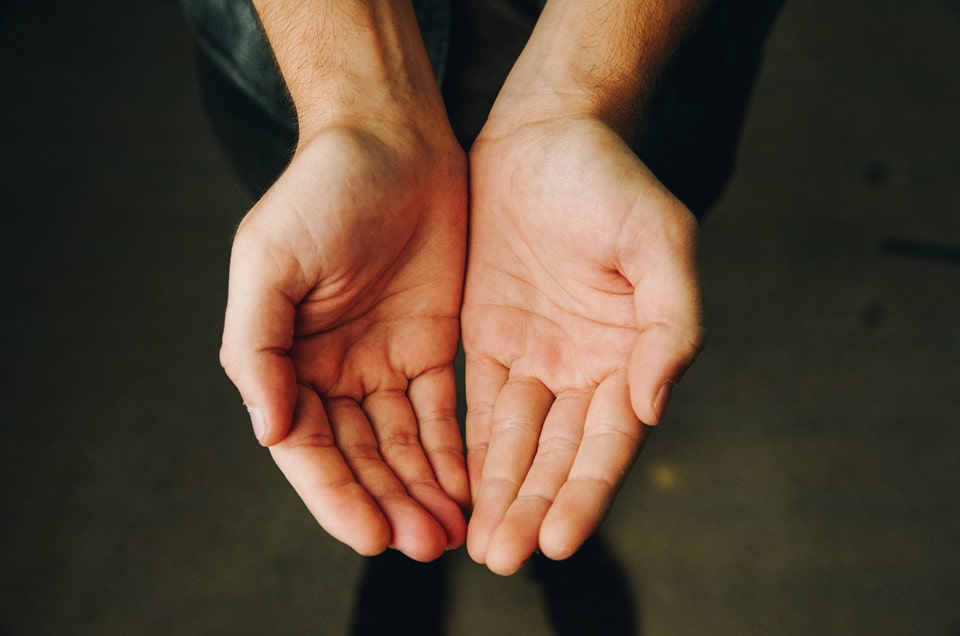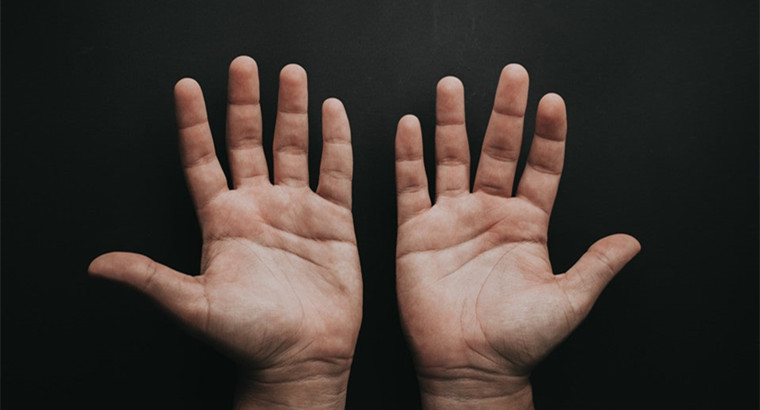Sweaty hands are quite embarrassing and stressful, especially if your work involves meeting new people and giving handshakes. This problem also affects your work and education because it always leaves you with ruined paperwork.
Fortunately, there are several effective ways to stop it. This article offers you tips on how to stop sweaty hands.
Causes of Sweaty Hands

Commonly referred to as palmar hyperhidrosis, the problem of sweaty hands is usually characterized by excessive sweating of your palms that isn’t necessarily caused by too much heat or rigorous physical exercises. This kind of sweating occurs even when the temperatures are low, and it involves excessive amounts of sweat that drip off your hands or soaks through your fabric gloves. Sadly, heavy sweating will hurt your daily life because it’ll lead to low self-esteem and social anxiety.
But if you understand what causes the heavy sweating, you can easily find a lasting solution to it. First, you need to understand that sweating is necessary for keeping your body cool. When your body temperatures rise, your nervous system activates your sweat glands, leading to sweating in different parts of your body including your hands. Sweating can occur when you are nervous.
So, if your hands are always sweaty even when the temperatures are low and you aren’t nervous, you have a problem with excessive sweating. Here are the most common causes of excessive sweating of hands.
1. Plantar Hyperhidrosis
Plantar hyperhidrosis is a condition that causes you to have extremely sweaty hands. Studies have shown that at least 3 percent of the world’s population suffers from this disorder. This condition typically starts at birth or during puberty.
Plantar hyperhidrosis mainly occurs when sweat glands on the skin of your hands are hyperactive. Sometimes these glands will produce excess sweat when responding to stressful situations and increased temperature. But at times they’ll cause excessive sweating for no apparent reason.
When you have hyperactive sweat glands, you’ll experience abrupt episodes of excessive sweating, even when you are relaxed. But this problem can be exacerbated by stressful situations, other underlying conditions, and rigorous physical activities.
2. Diabetes
Medical experts have discovered that diabetes can easily damage your nervous system, causing your sweat glands to remain hyperactive. This leads to excessive sweating of your palms and other parts of your body.
Diabetes also leads to hormonal imbalance, cardiovascular problems, and stress, which can further contribute to the problem of sweaty hands. Therefore, if your hands have suddenly become sweaty for no apparent reason, you should be checked for diabetes.
3. Menopause Hot Flashes
Menopause is the stage at which a woman stops getting her menstrual cycles. It’s characterized by a natural drop in a woman’s reproductive hormones when she reaches her 40s or 50s. Hot flashes and night sweats are also common when you reach menopause.
The sudden feeling of excess heat in your body is caused by the changing levels of reproductive hormones, especially estrogen and progesterone. When these hormones diminish, other hormones that are responsible for regulating your body temperature are also affected. This causes excessive sweating.
4. Thyroid Problems
Although common thyroid problems like hypothyroidism are mainly associated with feeling cold and decreased sweating, at times they cause excessive sweating. Thyroid hormones are responsible for regulating your body’s temperature. So, a decline in their production will destabilize temperatures in your body, causing excessive sweating.
5. Some Types of Cancer
Sweaty hands can be a sign of cancer. The most common types of cancer that can cause sweaty hands are non-Hodgkin lymphoma, Hodgkin lymphoma, carcinoid tumors, leukemia, mesothelioma, bone cancer, and liver cancer. Sometimes cancer treatment can also lead to excessive sweating.
6. Heart Attack
If your hands suddenly become excessively sweaty for no apparent reason and the problem is accompanied by pain and pressure in your chest, arms, neck, jaw, or back, you should seek medical help immediately because you could be having a heart attack. This complication is also characterized by shortness of breath, dizziness, fatigue, and nausea.
7. Damaged Nervous System
Your nervous system is responsible for triggering your sweat glands to produce sweat when your body temperature rises. But it’s only supposed to do this when you are engaged in rigorous physical activities or exposed to heat. When your nervous system is damaged, it’ll trigger your sweat glands abruptly even when you are relaxed, causing excessive sweating.
8. Infections
If your hands become excessively sweaty at night when sleeping, it could be a sign of an underlying infection. For instance, a minor respiratory contagion can result in a high fever, causing you to sweat excessively at night. Some of the infections that cause excessive sweating at night include tuberculosis, AIDS, bone infection (osteomyelitis), and abscesses.
Tips on How to Stop Sweaty Hands

As mentioned above, there are several effective solutions to sweaty hands. Although they may not fully eliminate the problem, they will keep it in check thus boosting your self-esteem and productivity at work or school. Here are the most effective ways to stop sweaty hands.
1. Wash Your Hands Regularly
Washing your hands regularly with cold water will prevent sweat glands on the skin of your hands from producing sweat. This will also keep your hands dry, especially if you use soap to wash them.
2. Use Tissue Paper or a Piece of Cloth
You should have a pack of tissue paper or handkerchief handy to dry your hands when they become sweaty. Although wiping your hands with tissues repeatedly may seem a bit weird, especially when you are in front of people, it will prevent you from destroying important paperwork.
3. Use Talcum Powder
Talcum powder will absorb the sweat and give you a better grip when you are working out or performing other tasks with your hands. So, put the powder in a small container so that you can conveniently carry it with you wherever you go.
4. Use Hand Gel
Hand gel is good for cleaning and drying your hands when you can’t access a sink. It will remove the moisture from your hands, giving you a better grip.
5. Don’t Wear Gloves
Gloves are meant to keep your hands warm. Therefore, if you have a problem with excessive sweating, your hands will be sweatier when you wear gloves. So, unless it’s extremely cold, like in the winter, you should avoid gloves to allow your hands to breathe and stay dry.
6. Avoid Stress
As noted above, stress and anxiety are major contributors to excessive sweating. So, if possible, always avoid stressful situations, especially if you already have conditions like hyperhidrosis because they’ll lead to more sweating.
Are Sweaty Palms Genetic?

According to a recent study conducted by the University of California, Los Angeles (UCLA) on vascular surgery, the problem of sweaty hands is genetic. The study revealed that this syndrome may be caused by a dominant gene. Therefore, the syndrome can be passed on from parents to children.
The study further revealed that at least 5 percent of the world’s population could be at risk of suffering from hyperhidrosis. The UCLA researchers studied 49 patients with hyperhidrosis and discovered that two-thirds of them revealed that their families have a history of hyperhidrosis. They also discovered that the disorder is dominantly inherited, but the responsible gene doesn’t cause hyperhidrosis all the time.
What’s the Relation Between Anxiety and Sweaty Hands?

If you’ve been keen, you probably noticed that your hands become sweaty when you’re anxious. Whether you are meeting your crush on a date or attending an important job interview, it’s normal to feel nervous, which leads to sweating. But what’s the link between anxiety and sweating?
Anxiety activates your autonomic nervous system (ANS), sending a rush of stress hormones, especially cortisol, to your bloodstream thus triggering various physical reactions. ANS, which is also referred to as fight-or-flight mode, sends panic signals to your body to prepare it for disaster. This causes your heart to race and your blood to pump faster, raising your internal temperature.
As your body temperature rises, you’ll start to sweat. The sweating will be worse if you have hyperhidrosis. Experts have also noticed that the sweat excreted due to anxiety has a stronger smell than the one excreted under normal circumstances.
Your body contains millions of sweat glands, most of which are eccrine glands that excrete sweat that mainly comprises water. The other common types of sweat glands in your body are apocrine glands, which are usually triggered when you are anxious. Apocrine glands are large and are mainly found in parts of your body with more hair follicles like armpits.
The sweat excreted by apocrine glands is thicker than the one excreted by eccrine glands and has more protein and fats. When these elements are combined with the bacteria found on your skin, they produce a pungent smell.
When to See a Doctor

Although sweating is normal, excessive sweating could indicate an underlying problem. Therefore, you need to know when your sweat is too much. Since there is no effective way to measure the amount of sweat you produce at a given time, you can only use your discretion to determine when it’s too much. So, excessive sweat can be described as any amount of sweat that causes you distress or makes you feel embarrassed.
If you feel like something isn’t right, don’t hesitate to see a doctor. You should also see a doctor immediately if your excess sweating occurs along with other symptoms like lightheadedness, chest pain, and nausea. Don’t hesitate to seek medical attention if:
• You suddenly start to sweat more than usual.
• You suffer emotional distress or social withdrawal due to heavy sweating.
• You feel like sweating is disrupting your daily life.
• You sweat heavily at night for no apparent reason.
Lastly, you should seek help from a dermatologist if your excessive sweating can’t be controlled by over-the-counter drugs. A dermatologist is an expert in hyperhidrosis treatment. They know how to treat severe cases of hyperhidrosis.










